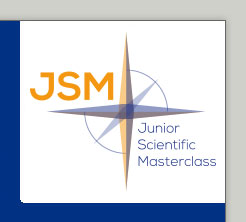Edit researchproject
In this email you'll find a link that you can use to edit the project on the website.
Only researchers that belong to the project can edit their project.
Please use the selectlist below to indicate which researcher you are. When you click the button 'Edit project', an email will be sent to the email of the selected researcher.
Project properties
| Title | Modification of recombinant Phl p5a for therapeutic optimization in a SCIT mouse model for the treatment of allergic asthma. |
|---|---|
| Keywords | tolerance induction immunotherapy Allergic asthma |
| Researchers |
M.C. Nawijn J.N.G. Oude Elberink L. Hesse |
| Nature of the research | You will participate in the allergen immunotherapy project in the lab of experimental pulmonology and inflammation research. You will be trained to independently perform all analyses required for answering the research question, including ELISA, cell culture, western blot and flowcytometry. You will be trained to present the data and write a report/paper. You can assist during mouse experiments if you want, but this is not compulsory. |
| Fields of study | immunology medical biology allergology |
| Background / introduction |
|---|
|
Allergic asthma is characterized by specific IgE and Th2-cell driven eosinophilic inflammation and airway hyperresponsiveness (AHR). Antigen specific immunotherapies (subcutaneous-; SCIT) are considered as one of the most promising new developments in the search to induce tolerance in allergy patients. The main challenge in developing effective antigen-based immunotherapeutics is to efficiently target and trigger dendritic cells (DCs) in order to elicit a specific, potent, and long term tolerogenic immune response without adverse effects. We have identified inhibitory glycans, like sialic acids (Sias), which can be linked to antigens with the purpose to suppress the immune response by instructing DCs to induce differentiation and activation of regulatory T-cells (Tregs). Sias serve as ligands for Siglec receptors, a large family of Sia-binding Ig-like lectins. Glycated antigens have a considerable higher internalization potency compared to un-glycated antigens. This results in a longer antigen presentation and a more potent immune response. Considerable lower and more potent doses can be administered using glycated allergens, which will improve both the efficacy and safety profile of the treatment. Previously, in our grass pollen (GP; Phleum pratense; Phl p) animal models of allergic asthma, we optimized GP-SCIT as well as sublingual immunotherapy (SLIT). Currently, we aim to improve SCIT by trying to find new more potent formulations for inducing tolerance in these mouse models. We hypothesize that glycan modification of recombinant Phleum pratense 5a (rPhl p5a) has the potential to enhance the efficacy of SCIT, thereby increasing its potential for clinical application in asthma. |
| Research question / problem definition |
|---|
| Does glycan-modification of recombinant Phl p5a enhance efficacy of subcutaneous allergen immunotherapy in an experimental model? |
| Workplan |
|---|
| The student will set out to study all measured parameters of allergic asthma in this in vivo mouse study. The parameters include: airways hyperresponsiveness to methacholine using direct, in vivo measurement of airway resistance (FlexiVent), levels of GP-specific IgE, IgG1, and IgG2a in serum (ELISA), acute allergic response by measureing ear-swelling responses (ESR) after intradermal allergen injection, eosinophils in broncho-alveolar lavage fluid (BALF) and lung (Cytospin, Sysmex and FACS), and levels of cytokines after allergen-specific re-stimulation of lung cells (IL-5, -10, -13, and IFNγ ELISA). Only laboratory work is required; all animal handling and work within the animal center will be performed by the supervisor and/or a biotechnician. |
| References |
|---|
|
Maazi H, Shirinbak S, den Boef LE, Fallarino F, Volpi C, Nawijn MC, van Oosterhout AJ. Cytotoxic T lymphocyte antigen 4-immunoglobulin G is a potent adjuvant for experimental allergen immunotherapy. Clin Exp Immunol. 2013;172:113-20. Maazi H, Shirinbak S, Willart M, Hammad HM, Cabanski M, Boon L, Ganesh V, Baru AM, Hansen G, Lambrecht BN, Sparwasser T, Nawijn MC, van Oosterhout AJ. Contribution of regulatory T cells to alleviation of experimental allergic asthma after specific immunotherapy. Clin Exp Allergy. 2012 ;42:1519-28. van Kooyk Y, Unger WW, Fehres CM, Kalay H, García-Vallejo JJ. Glycan-based DC-SIGN targeting vaccines to enhance antigen cross-presentation. Mol Immunol. 2013 ;55:143-5. |


